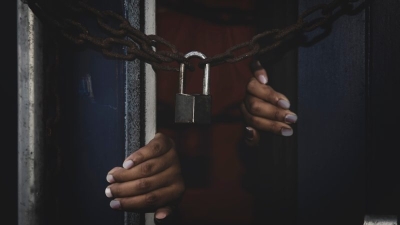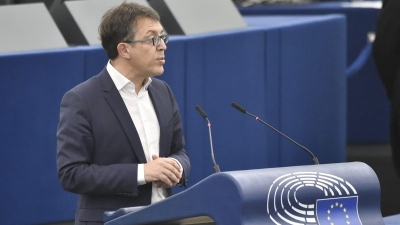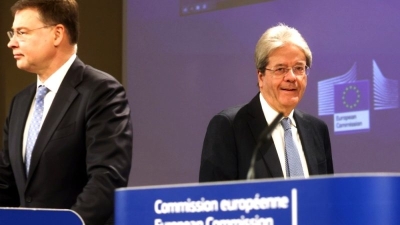LEAK: EU recommendation on piracy of live events disgruntles rightsholders

The European Commission’s recommendation to fight online piracy of live events focuses on the effective handling of take-down requests, dynamic injunctions, and voluntary cooperation. Still, rightsholders have found its relaxed revision time disappointing.
The Commission is due to present its recommendation on the piracy of live content on 3 May. The non-binding initiative is meant to push member states, national authorities and intermediary services to take effective and proportionate measures to combat the unauthorised retransmission of live events.
However, according to an early draft obtained by EURACTIV, the recommendation is set to fall short of the expectations of rightsholders, like TV channels, who have acquired the rights to transmit a football championship or music concert.
Rightsholders, who have been calling for mandatory measures, were already disappointed by the non-binding nature of the initiative.
“We have consistently been assured by the European Commission that ‘what is illegal offline is illegal online’, yet there appears to be no urgency to enforce the rule of law in the case of piracy, despite the blatant theft of highly valuable, proprietary content which is undeniably taking place,” a representative of the Live Content Coalition told EURACTIV.
Rightholders call on Commission to tackle piracy of live content
More than 100 media, sports, music and culture organisations have written to the Commission calling for “decisive legislative action” to clamp down on the piracy of live-broadcast content.
Notification mechanisms
The draft recommendation calls on hosting services – like Internet Service Providers that offer a website the infrastructure to function – to act while the live event is still ongoing to minimise the harm of online piracy.
In this regard, the hosting services are asked to collaborate with rightsholders, notably by engaging with trusted flaggers and developing technical solutions to speed up the notification process, for instance, implementing an interface for filing them.
Intermediary services, like web hosting services, that can identify and locate the pirated transmission of live events are encouraged to cooperate with hosting services and rightsholders to identify the source of unauthorised retransmissions and prevent it from popping up again in so-called mirror websites once it is shut down.
Dynamic injunctions
In turn, EU countries are asked to assess whether, in their jurisdiction, sports event organisers can take legal action to prevent the unauthorised retransmission of sports events. If not, national governments are encouraged to give rightsholders legal standing to issue injunctions.
The injunctions to block the illegal streaming of live events might also be addressed to intermediary service providers that allow pirated content, even though the service is not liable for everything that happens on its platform under the EU legal framework.
Rightsholders are encouraged to apply for an injunction before the event starts, indicating that the operator in question has allowed the unauthorised retransmission of live events before.
The Commission wants these injunctions to be “dynamic”, meaning they can be extended even to websites that were not identified at the time of the injunction but concern the same sports event.
For these dynamic injunctions, the member states should provide a way to update the relevant URLs. At the same time, the measures required in the injunction should not be excessively burdensome for the intermediary service and be limited to the strictly necessary.
Moreover, the right of users to access legal content should not be affected.
Voluntary cooperation
Intermediary services not targeted with an injunction should also be encouraged to take voluntary measures to prevent illegal streaming of live events. Other market players, like advertisers and payment services, should also make sure they do not facilitate piracy websites.
Organisations that hold the rights to live events “should be encouraged to increase the availability, affordability, and attractiveness of their commercial offers to end users across the Union,” the draft recommendation reads.
EU countries, in turn, are asked to inform consumers about the available legal offers, notably informing users trying to access a piracy website that it has been blocked.
The European governments are also prompted to build capacity and raise awareness about the issue among law enforcement agencies, including by participating in cross-border operations and proactively exchanging information with authorities from other EU countries.
In addition, the Commission wants the EU’s Intellectual Property Office’s (EUIPO) Observatory to propose training activities for judges and authorities on the existing rules and practices related to online piracy of live events.
Revision
EUIPO is also invited to define monitoring indicators on the effectiveness of the recommendation, for which purpose stakeholders and national authorities are invited to submit relevant information.
Within three years of the recommendation’s adoption, the Commission will assess its effectiveness. That timeframe is particularly hard to swallow for rightsholders since it means they cannot hope for a legislative intervention before then.
“The suggestion that the effects of the recommendation be assessed three years after its adoption is completely at odds with the urgency of the situation,” the Coalition representative added.



